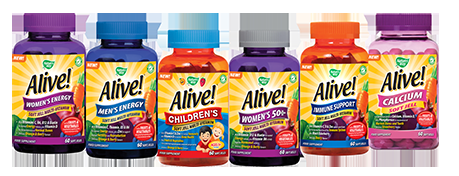<link href="https://cdn.sur.ly/widget-awards/css/surly-badges.min.css" rel="stylesheet">
<div id="surly-badge" class="surly__id_56779743 surly-badge_white-gradient" onclick="if(event.target.nodeName.toLowerCase() != 'a' && event.target.parentElement.nodeName.toLowerCase() != 'a') {window.open('https://sur.ly/i/parentingwithouttears.com/'); return 0;}">
<div class="surly-badge__header">
<h3 class="surly-badge__header-title">Content Safety</h3>
<p class="surly-badge__header-text">HERO</p>
</div>
<div class="surly-badge__tag">
<a class="surly-badge__tag-text" href="https://sur.ly/i/parentingwithouttears.com/"> parentingwithouttears.com </a>
</div>
<div class="surly-badge__footer"> <h3 class="surly-badge__footer-title">Trustworthy</h3> <p class="surly-badge__footer-text">Approved by <a href="https://sur.ly" class="surly-badge__footer-link">Sur.ly</a> </p> </div> <div class="surly-badge__date">2023</div>
</div>

The stresses of modern life can leave even the very best of us exhausted, but experts are warning that women in particular may risk serious health problems because of poor levels of crucial nutrients because of complications with the use of the oral contraceptive pill, as well as hormone replacement therapy (HRT). Both have been linked through many scientific studies with fears that they can have an adverse effect on nutrient levels, leaving women – or a baby they become pregnant with – at a greater risk of health issues.
Now a new report by a group of nutrition, medical and research experts – commissioned by Alive! a unique supplement range packed with 26 fruits and vegetables, with products for all ages – has outlined the severity of the issue. The report, The Impact of Modern Medicine on Nutrient Status, brings together the key challenges in achieving adequate nutrient levels as well as the potential health risks if vitamin and mineral levels are allowed to plummet.
Diet doldrums and nutrient needs
While all adults need to ensure a healthy diet, figures show that women in particular face some extra challenges. The UK National Diet and Nutrition Surveys (NDNS) has revealed a marked drop in women’s intake of most vitamins and minerals, with deficiencies being linked to a host of health issues, some potentially very serious.
New research commissioned by Alive! underlines this worrying picture. Adults from across the UK were quizzed on their diets and only 20 per cent said they eat the recommended five portions of fruit and vegetables a day. Over one third said only managed to eat five portions of fruit and veg two or fewer days in a week.
The pill and hormone-related issues
Many women are unaware of the potential side effects from use of the contraceptive pill or HRT, in particular issues with nutrient status.
Key nutrients identified as being particularly at risk with pill use include:
The Alive! Report also takes an in-depth look at some of the complex interactions triggered by the use of oral contraceptives, including how they can disrupt the way the body metabolises fats and carbohydrates and processes sugars.
In addition, the report reviews how the use of the pill can negatively affect a woman’s folate status – crucial for protecting against neural tube defects in early pregnancy – and how folic acid supplements can be an important strategy for women looking to become pregnant.
The latest data revealed in the report is at odds with many women’s knowledge of the risks and issues of taking the pill. Just half of those quizzed said that they were not given advice on the possible side effects of taking the pill and a staggeringly high 94% said they were not told about potential side effects of HRT.
Spotlight on Vitamin D
The last part of the Alive! report examines vitamin D – the sunshine vitamin. However, this nutrient is revealed to be at the centre of one of the most pressing issues in the fight to maintain good nutrition. Vitamin D is synthesised in our bodies from sunlight and plays a huge role in maintaining good health, particularly bones and muscles.
In addition, researchers have found new evidence linking the vitamin with far more than just bone health – it’s thought that heart disease, cancer, multiple sclerosis, asthma, depression and type 2 diabetes, to name just a few, may be associated with poor vitamin D levels. It’s particularly worrying as figures show that nearly a third of adults have intakes so low as to risk deficiency.
A key problem is that the main source of vitamin D is sunshine rather than from food – even in a healthy diet it’s hard to get the recommended amounts of the vitamin. But in the UK we often have poor levels of sunshine, especially in the autumn and winter months, and this can leave vitamin D levels in the body severely depleted. Such is the concern over the issue, Public Health England changed its recommendations in 2016, saying that all adults and children over the age of one year old should consider taking a 10 microgram vitamin D supplement, especially during autumn and winter when there is limited sunlight. In addition, the DoH says all babies from birth to one year old, all children aged one to four and people who aren’t exposed much to the sun should take daily supplements to make sure they get enough vitamin D.
A recent analysis of UK diet data by the Health Supplement Information Service found:
The ALIVE! range of vitamin and mineral food supplements, from Nature’s Way in the UK, has been specifically formulated to "plug nutrient gaps" and help bring the nation’s health back on track. Plus, they all contain a unique blend of 26 fruits and vegetables for a great daily top-up.
Available in tablets and Soft Jells, with a vast product range including formulations for the whole family and bespoke products to cater for women, men and the healthy growth of children, the ALIVE! portfolio provides specific formulations to suit all nutrient requirements at every life stage. And they are suitable for vegetarians.